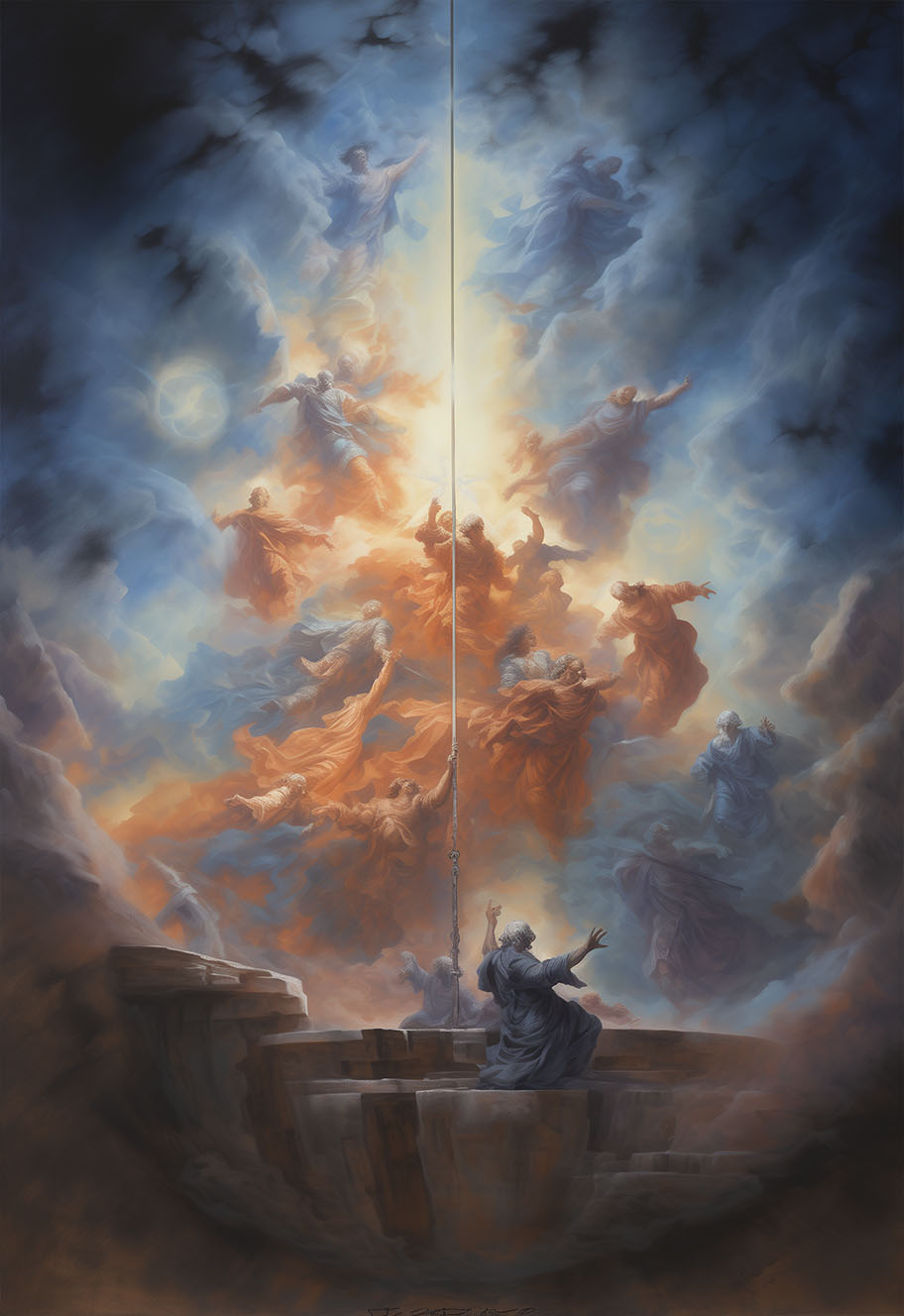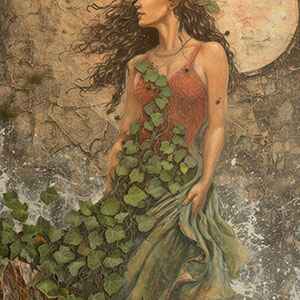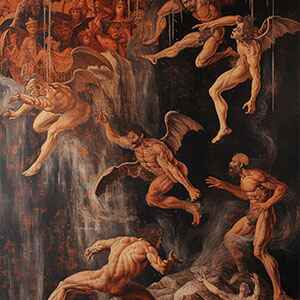Chaos
In ancient Greek cosmogony, Chaos played a fundamental role as the initial state of existence. Chaos was not a deity in the traditional sense but rather a primordial, formless void that preceded the creation of the cosmos. The concept of Chaos is prominently featured in various ancient Greek myths and philosophical traditions.
Parents: None
Siblings: Gaea, Tartarus, Erebus, Nyx
Consort: None
Children: None

Primordial State: Chaos represented a state of formlessness and disorder, often described as a vast, dark abyss or void. It was the origin point from which everything else in the cosmos emerged.
Family of Deities: From Chaos, other primordial deities emerged, including Gaea (Earth), Tartarus (the abyss beneath the underworld), Erebus (darkness), and Nyx (night). These entities represented the foundational elements of the natural world.
Cosmic Generation: Chaos and its offspring set the stage for the generation of the Titans, who, in turn, gave rise to the Olympian gods. This succession of deities represented the order and structure gradually emerging from the original formless Chaos.
Mythological References: While Chaos itself wasn't a character in many myths, its presence is often acknowledged in the genealogies of gods and primordial beings. Hesiod's "Theogony" is a significant source that outlines the genealogy of the gods, starting with Chaos.
Philosophical Interpretations: The concept of Chaos had philosophical implications in ancient Greek thought. Pre-Socratic philosophers, such as Anaximander, considered a primordial substance (the "Apeiron") as the source of all things, akin to the idea of Chaos as an indeterminate and boundless state.
Symbolic Significance: Chaos symbolised the potential for creation, as the ordered world arose from this initial state of disorder. It encapsulated the idea that the cosmos had a beginning, and from that beginning, a structured and meaningful universe emerged.
Modern Interpretations: The concept of Chaos from Greek mythology has found resonance in modern literature, popular culture, and even scientific discussions. Chaos theory, a branch of mathematics and physics, explores complex systems and their inherent unpredictability - a concept that can be seen as a modern echo of the ancient Greek notion of Chaos.
In summary, Chaos represented the formless, primordial state that preceded the ordered cosmos. It played a crucial role in the cosmogonic myths, illustrating the cyclical and generative nature of the universe in Greek thought.
Immediate Family
Quick Facts
- Chaos represented the formless, primordial state.
- It played a crucial role in cosmogonic myths.
- Chaos symbolized the potential for creation.
- It is mentioned in Hesiod's "Theogony."
- Pre-Socratic philosophers had philosophical interpretations of Chaos.
- Chaos has modern resonance in chaos theory.
Further Reading
Art &
Architecture
Ancient Greek art and architecture, with its harmonious proportions and timeless elegance, continue to inspire awe and admiration millennia later.
Discover
Greek Mythology & Mythical Characters
Greek mythology, a rich tapestry of gods, heroes, and mythical creatures, captivates the imagination with its tales of love, betrayal, and epic adventures that delve into the depths of the human psyche.
Discover
Ancient Greek History
Ancient Greek history, marked by remarkable achievements in democracy, philosophy, and warfare, shaped the foundation of Western civilization, leaving an indelible legacy of innovation and cultural influence that continues to resonate to this day.
Discover
Ancient Greek Olympics
The ancient Greek Olympics, held in Olympia every four years, celebrated athleticism, unity, and cultural pride, serving as a testament to the enduring spirit of competition and excellence that transcends time and borders.
Discover
Ancient Greek Wars
Ancient Greek wars, such as the Persian Wars and the Peloponnesian War, were pivotal conflicts that shaped the course of history, highlighting the struggle for power, independence, and the clash of civilizations in the ancient Mediterranean world.
Discover
Ancient Greek Culture and Society
Ancient Greek culture and society, characterized by its emphasis on art, philosophy, and civic engagement, fostered a vibrant intellectual and social landscape where innovation flourished, democracy thrived, and the pursuit of knowledge and excellence was celebrated as fundamental values of civilized life.
Discover

